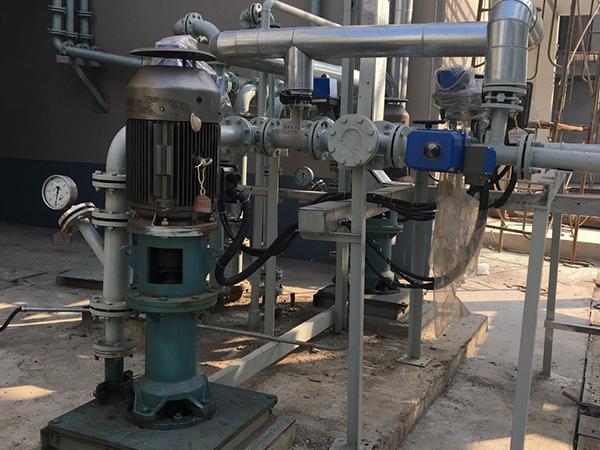TEL:
+86 13120555503
Japanese
- Afrikaans
- Albanian
- Amharic
- Arabic
- Armenian
- Azerbaijani
- Basque
- Belarusian
- Bengali
- Bosnian
- Bulgarian
- Catalan
- Cebuano
- Corsican
- Croatian
- Czech
- Danish
- Dutch
- English
- Esperanto
- Estonian
- Finnish
- French
- Frisian
- Galician
- Georgian
- German
- Greek
- Gujarati
- Haitian Creole
- hausa
- hawaiian
- Hebrew
- Hindi
- Miao
- Hungarian
- Icelandic
- igbo
- Indonesian
- irish
- Italian
- Japanese
- Javanese
- Kannada
- kazakh
- Khmer
- Rwandese
- Korean
- Kurdish
- Kyrgyz
- Lao
- Latin
- Latvian
- Lithuanian
- Luxembourgish
- Macedonian
- Malgashi
- Malay
- Malayalam
- Maltese
- Maori
- Marathi
- Mongolian
- Myanmar
- Nepali
- Norwegian
- Norwegian
- Occitan
- Pashto
- Persian
- Polish
- Portuguese
- Punjabi
- Romanian
- Russian
- Samoan
- Scottish Gaelic
- Serbian
- Sesotho
- Shona
- Sindhi
- Sinhala
- Slovak
- Slovenian
- Somali
- Spanish
- Sundanese
- Swahili
- Swedish
- Tagalog
- Tajik
- Tamil
- Tatar
- Telugu
- Thai
- Turkish
- Turkmen
- Ukrainian
- Urdu
- Uighur
- Uzbek
- Vietnamese
- Welsh
- Bantu
- Yiddish
- Yoruba
- Zulu
Telephone: +86 13120555503
Email: frank@cypump.com
2月 . 17, 2025 15:55 Back to list
septic tank pump system
Septic tank pump systems are integral to efficient wastewater management in homes not connected to municipal sewage lines. With advancements in technology, these systems have become more effective and user-friendly, ensuring optimal environmental safety and increased lifespan of the septic infrastructure. As an SEO-focused publication, delving into the specifics of septic tank pump systems not only provides valuable information to potential customers but also enhances website visibility by addressing queries pertinent to effective waste management solutions.
The trend towards smart septic solutions cannot be ignored, as innovative technologies are reshaping traditional pump systems. Smart pumps equipped with wireless sensors allow homeowners to monitor system conditions in real time, providing alerts for maintenance schedules and potential malfunctions. These technological advancements not only prevent costly emergencies but also enhance user trust in the system's reliability and functionality. Moreover, homeowners considering septic system installations or upgrades should check local regulations regarding environmental standards and system permits. These legal considerations underscore the importance of partnering with manufacturers and service providers who possess the expertise and credibility necessary to navigate these regulatory landscapes effectively. Ultimately, reliable septic tank pump systems are an investment in both property value and environmental stewardship. By choosing the right components and maintaining them judiciously, homeowners can ensure optimal system performance that aligns with contemporary waste management needs. By integrating information on the latest pump technologies, maintenance best practices, regulatory compliance, and after-sales support, a website can establish authority and trustworthiness, resonating well with search engines and driving more organic traffic to its pages. This comprehensive approach to producing high-quality, detailed content not only satisfies user queries but also enhances the overall user experience on the website, positioning the platform as a leading educational resource in the septic tank system industry.


The trend towards smart septic solutions cannot be ignored, as innovative technologies are reshaping traditional pump systems. Smart pumps equipped with wireless sensors allow homeowners to monitor system conditions in real time, providing alerts for maintenance schedules and potential malfunctions. These technological advancements not only prevent costly emergencies but also enhance user trust in the system's reliability and functionality. Moreover, homeowners considering septic system installations or upgrades should check local regulations regarding environmental standards and system permits. These legal considerations underscore the importance of partnering with manufacturers and service providers who possess the expertise and credibility necessary to navigate these regulatory landscapes effectively. Ultimately, reliable septic tank pump systems are an investment in both property value and environmental stewardship. By choosing the right components and maintaining them judiciously, homeowners can ensure optimal system performance that aligns with contemporary waste management needs. By integrating information on the latest pump technologies, maintenance best practices, regulatory compliance, and after-sales support, a website can establish authority and trustworthiness, resonating well with search engines and driving more organic traffic to its pages. This comprehensive approach to producing high-quality, detailed content not only satisfies user queries but also enhances the overall user experience on the website, positioning the platform as a leading educational resource in the septic tank system industry.
Share
Latest news
-
AI-Optimized Pipeline Pumps | Boost Efficiency
NewsAug.05,2025
-
Reliable Non-Clog Sewage Pumps with GPT-4-Turbo Tech
NewsAug.04,2025
-
High-Performance Air Pumps for Sand & Gravel | Efficient Transport
NewsAug.03,2025
-
ISG Series Vertical Pipeline Pump - Chi Yuan Pumps Co., LTD.|Energy Efficiency, Corrosion Resistance
NewsAug.03,2025
-
ISG Series Pipeline Pump - Chi Yuan Pumps | Energy Efficiency&Compact Design
NewsAug.03,2025
-
ISG Series Vertical Pipeline Pump - Chi Yuan Pumps Co., LTD.|High Efficiency, Low Noise, Durable
NewsAug.02,2025










